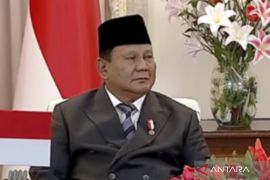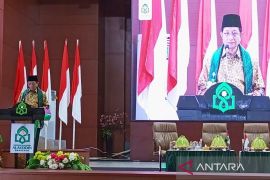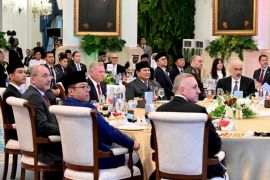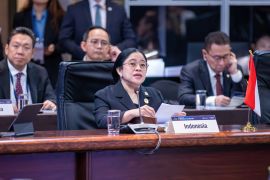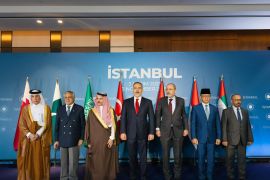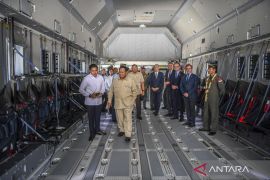A meeting in Cairo on Tuesday between Palestinian president Mahmoud Abbas, who heads Fatah, and Hamas chief Khaled Meshaal has been postponed due to Hamas opposition to the reappointment of Western-backed economist Salam Fayyad, they said.
"The real reason for the delay in the forming and convening of the government is disagreement over Fayyad," an official told AFP on condition of anonymity.
"President Abbas insists on nominating Salam Fayyad, whose appointment Hamas categorically rejects," he added. "That has led the two sides to postpone the meeting rather than announce the collapse of the reconciliation."
"Fayyad is not wanted because his name is linked to Palestinian division, the debt-ridden Palestinian economy and operations by the (Palestinian) security services against the resistance," Gaza Hamas leader Ismail Radwan
said, referring to the group`s armed campaign against Israel.
Announcing the delay on Sunday, Fatah official Azzam al-Ahmed made no mention of a leadership dispute.
"The meeting has been postponed until a new date is set in the coming days in order to assure the best atmosphere for the successful implementation of the reconciliation agreement," he told AFP.
Ahmed said Fatah had requested the delay in the talks "to create the right atmosphere and because of the commitments that have come up on the president`s schedule in Turkey."
He said Abbas would visit Turkey on Wednesday.
Samir Awad, a professor of political science at Bir Zeit University near Ramallah, said that while Fayyad has the personal backing of Abbas, he does not have universal support within Fatah.
"There are those who favour dropping his candidacy and putting other names forward," he said. "Hamas has burnt all its bridges and continues to reject Fayyad."
A change of heart by Hamas seems unlikely given that the Islamist group has already agreed other concessions that set off a row between Mahmud Zahar, its main Gaza ideologue and Syria-based political leader Meshaal.
Zahar, who participated in discussions with Fatah in April, has criticised Meshaal for comments he made during the official ceremony of reconciliation on May 4, saying he had "no mandate to make such statements."
A member of Fatah`s central committee confided to journalists last week that he too was surprised by some of Meshaal`s words.
"He said `We accept two states on the 1967 borders. We are not in favour of violence,`" Mohammed Shtayeh said, adding that Meshaal had also told Abbas that if he needed more time to negotiate with Israel, he would not object.
"What I heard from Khaled Meshaal... I never expected him to say," Shtayeh said.
A poll published on Monday by the independent Palestinian Centre for Policy and Survey Research showed broad public support for Fayyad with 45 percent of 1,200 respondents favouring him, as opposed to 25 percent approval for Jamal Khodari, who is widely believed to have Hamas`s backing.
Under the terms of the unity deal signed by Fatah and Hamas they must agree on independent figures to make up a government that will lay the groundwork for legislative and presidential elections within a year. (*)
Editor: Kunto Wibisono
Copyright © ANTARA 2011

